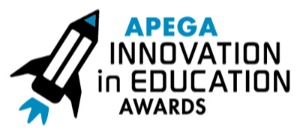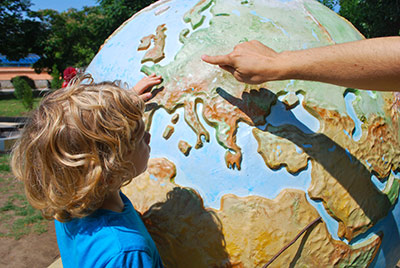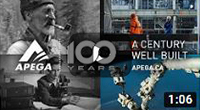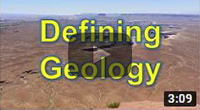APEGA Innovation in Education Awards

Supporting Experiential Learning in Alberta Schools
APEGA is not currently accepting Innovation in Education applications. Applications will re-open Fall 2024. |
The APEGA Innovation in Education Awards enables Alberta educators to incorporate meaningful, educational experiences in their Grade K to 12 classrooms. The goal of these awards is for students to leverage engineering and geoscience concepts to positively impact their school community, or beyond. Students will explore engineering, geoscience and curriculum concepts through the creation of a prototype that meets a need or solves a problem in society.
Awards of up to $5,000 each, totaling $50,000, will be awarded to facilitate innovative engineering- and geoscience-focused student-led initiatives.
Who Can Apply?
Alberta Schools with any K to 12 students, and all educational, administrative, and support staff members currently employed by a Grade K to 12 school or school board in Alberta are encouraged to apply. Applicants must be certified to teach in Alberta. Schools on the border of Alberta are eligible if their students are Alberta residents. Recipients must be in roles that enable them to complete the initiative with a large group of students and must have the full support of their school or school board.
What kind of project can win an Innovation in Education Award?
Check out some past recipients and media coverage of an award-winning project!
Initiative Criteria
-
Activities conducted through this award must:
- Be focused on engineering or geoscience.
- Engineering is the application of scientific principles to develop comprehensive solutions to specific problems.
- Geoscience encompasses many areas of study. For this award, the focus should be on geology and geophysics.
- Please look at the Careers in the Curriculum documents to see some examples of how engineering or geoscience can be related to the curriculum.
- Have active student engagement during school hours with at least one class from the recipient's school.
- This is not intended to be an enrichment program - it should engage at least one class of diverse students and diverse learners during regular school hours.
- If you would like to run an initiative outside of a regular class (e.g., an after-school club), please contact [email protected] before submitting your application to discuss eligibility.
- Be student-led, hands-on, and engaging.
- Your proposed schedule should include touchpoints where students have an opportunity to influence the direction of the project.
- Encourage student skill development while also teaching realistic and relevant applications of the engineering and geoscience fields.
- Have a positive and measurable effect on the class and the school community outside a singular classroom, i.e., your initiative should also result in a deliverable that positively effects the school community.
- For example, past award recipients have engaged in the following community-benefitting initiatives:
- constructing a climate battery for a community growing dome located at their school
- programming a machine that automatically sorts recyclable plastics from non-recyclable items
- developing devices to help senior centre residents with their daily challenges
- studying conditions of a local water reservoir and presenting prototype solution to the city
- creating informative trail signs about ecology and geology for a community trail
- designing aquaponic systems to be donated to community centres
- Be completed within the designated timeframe, to be worked on throughout a semester, or course, in the school year. Any changes in this timeframe must be discussed with and approved by the APEGA Outreach team. Specific dates will be released in Fall 2024 when applications open.
- Adhere to the rubric provided below.
-
The Careers in the Curriculum resource provides examples of how engineering and geoscience may relate to knowledge outcomes found in the curriculum. This resource is intended as a starting point, and is not an exhaustive list of career and curricula connections.
How We Choose Recipients
Recipients of the Innovation in Education Awards are selected by a panel of APEGA staff members based on how well the proposed initiative meets the selection criteria.
For your project proposal to be selected, you must clearly meet all criteria and provide specific project details with demonstrable impacts while also incorporating extensive student choice. We recommend establishing a framework for your initiative that will allow you to meet all of the specific proposal criteria.
Be sure to identify student choice points and how your students will influence this project within the scope of the final desired results. Address how your students might be able to change the scope of your project, and how you will adapt to these changes.
Please note: Projects that consist solely of the creation of a makerspace, the completion of short, discrete projects, or the purchase of classroom equipment will typically not be accepted.
However, if those activities/purchases are required for the completion of a larger initiative that meets the other criteria, then the submission will still be considered.
Your application should clearly define the overarching problem the students will be solving through the entire initiative, and how the makerspace, small activities, or classroom equipment purchase will contribute to that goal.
Professional development opportunities and substitute teacher coverage are also not counted as eligible expenses for the APEGA Innovation in Education Awards.
Application Process
There are two stages in the application process. Successful completion of Stage 1 must occur for applicants to move to Stage 2.
-
Applications are currently closed, but will reopen in Fall 2024
In this stage you will be required to provide a proposal for your initiative. Using the online application form for Stage 1, you will provide basic information about yourself and your school, and specific details about your proposed initiative.
In this form, you will also be asked additional questions about your proposal that are intended to provide detailed information about your project planning process and requests for support. A letter of school support, as well as a Budget, Timeline and Risks document will also need to be provided during this stage of the application process.
For your reference, the online application form for Stage 1 has examples answers provided as placeholders in the form.
Your application will be reviewed after the deadline, and if successful, you will move forward to Stage 2.
Letter of School Support
You will need to upload a letter of support from your school principal that addresses the following:- How will the school administration support you in completing the initiative as described (e.g., will it make an in-kind donation or provide support staff or additional time and resources)?
- How does this initiative tie in with your school's or school board's goals?
Budget and Timeline Sheet
You will need to fill in and submit a proposed budget and timeline of key milestones. You will be prompted to upload this file within the application form.
-
Applications are currently closed, but will reopen in Fall 2024
Upon successful completion of Stage 1, a virtual meeting with the APEGA Outreach Team will be scheduled to further discuss your initiative. Any clarification needed for the answers provided in the application form will be addressed here.
After Stage 2, if your proposal is selected to proceed, you will be notified.
What constitutes engineering or geoscience?
What do we mean by "engineering and geoscience" concepts? Here are some informative resources to help guide the focus of your submission.
On the importance of engineering and geoscience in Alberta
Introduction to the professions - APEGBC
More about geology
More about geophysics
For even more videos about geoscience concepts, check out this YouTube channel.
Tentative Timelines
| Fall 2024 | Applications Open |
| TBD | Stage 1: Application form deadline |
| TBD | Stage 2: A scheduled meeting with APEGA Outreach |
| TBD | Recipients announced |
| TBD | Initiatives are scheduled to start |
| TBD | Provide a progress update |
| TBD | Provide a progress update |
| TBD | Final report deadline |

If you are an award winner you will be asked to submit a two brief project updates, as well as a final report to capture the success of your initiative. Recipients will be asked to provide photos and videos, timeline and budget updates, and initiative-specific metrics (such as the number of students engaged, the initiative's influence to date, and unexpected challenges or modifications to the initial plan).
The final report must include a video featuring students summarizing the project's goals, progress, and final deliverables. Failure to submit sufficiently detailed progress reports by the necessary deadlines may result in award funding being withheld by APEGA.
Terms and Conditions
- Should the project require funds above those provided by APEGA and the school/school board, award recipients can utilize other funding sources to support their initiatives. Allocation of funds from various sources must be clearly outlined in the application.
- Upon selection of the final Award winners, APEGA will inform recipients of the amount of funding approved for their project. The full amount will only be dispersed to schools after all project deliverables (including receipts) are submitted on time. If the recipient’s employment at the school ends during the term of the agreement, the funds will stay with the school, provided the initiative will be completed by an alternative staff member. If no substitute can be found, all funds must be returned to APEGA.
- APEGA retains the right to withhold or withdraw funds if the initiative is not completed as described in the application form, or if reporting is not completed. This includes the provision of high-quality photos and videos and other deliverables as requested.
- APEGA must be notified of significant changes to the initiative, and the recipient must receive APEGA’s written approval of the changes before proceeding.
- All expenses must be incurred between the designated timeline, TBD.
- An individual or school may apply more than once with different initiative proposals, but there can be only one recipient per school, per award year, and the amount received must be dedicated to a single initiative. Collaborative applications that include multiple teachers and classrooms are encouraged.
- The award cannot be used to fund food, travel, or capital expenses (e.g., a class set of equipment or upgrades to school facilities) unless they are crucial to the completion of the initiative. Such expenses must be clearly outlined and justified in the proposed budget and approved by APEGA.
- APEGA will not fund competition/event fees or travel to competitions/events. Teacher Professional Development course fees and associated costs, as well as teacher coverage (i.e., costs for substitute teachers) will also not be covered.
- The purchase of technology may be covered, but it must be economical as well as necessary for the completion of the initiative and approved by APEGA.
Questions?
If you have any questions, please email us at [email protected] with the subject line "APEGA Innovation in Education Awards".





